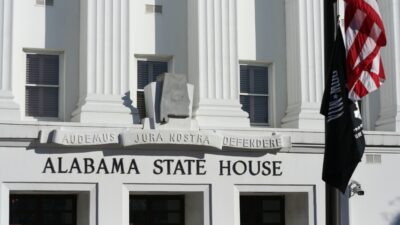These legislative actions raise fundamental questions about the role and direction of Alabama’s state government.

An opinion By
In the waning days of Alabama’s legislative session, a critical question looms over the state Capitol: Has the Legislature effectively served the welfare and security of its citizens? This question isn’t just procedural; it’s foundational, touching on the very core of what it means for a government to be “of the people, by the people, for the people.” Yet, in Alabama, the stark reality is that a far-right fringe within the Republican Party, bolstered by partisan gerrymandering, seems to hold disproportionate sway over state policies.
The crux of state governance is multifaceted: upholding law and order, advancing public welfare, protecting citizens’ rights, fostering economic growth, and safeguarding our environment. These objectives should guide every legislative action, shaped through the concerted efforts of Alabama’s executive, legislative, and judicial branches. Yet, recent legislative endeavors suggest a worrying departure from these ideals.
Take, for example, the contentious HB209, a bill that ostensibly aims to clamp down on “ballot harvesting” by criminalizing various forms of assistance in absentee ballot voting. While it’s cloaked in the language of election security, the bill has a much more insidious purpose, as noted by the League of Women Voters of Alabama and others who see a darker intent. If passed into law, the bill will disenfranchise vulnerable populations, such as the elderly and disabled, by criminalizing those who wish to assist them in voting. Is this truly in the spirit of ensuring the welfare and rights of all Alabamians?
In a state marred by a contentious history of voter suppression and an often turbulent struggle with progress, Alabama once again finds itself at the heart of a contentious debate over voting rights. Proponents of HB209 hail it as a step forward in securing electoral integrity, claiming the bill fortifies the bulwarks against potential voter fraud. Yet, a closer examination reveals that this legislation might be less about securing elections and more about perpetuating Alabama’s long-standing tradition of placing hurdles before the electorate, particularly marginalized communities.


